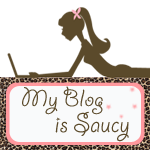
I know someone who uses BIG words. In order to protect the not-so-innocent, I am going to call this person Betty. Betty likes using big words or as Betty would put it, she has a propensity to use big words. She doesn’t use them all the time but likes to toss one, every now and then, into casual conversation to help keep us “less learned” people on our toes. She does, however, have the habit of bringing out the “big guns” whenever there is a discussion, disagreement, or difference of opinion.
I personally have nothing against big words. When I hear a word in conversation that I don’t understand, I have no problem with asking its user for the word’s meaning. After all, knowledge is power, right? But these situations are few and far between. I am rarely ever in a conversation where I have to ask for the meaning of a word more than once EXCEPT when I am with Betty. I’ve told Betty that using big words that the average person would not understand is not only annoying and confusing, but also makes her look smug and condescending. Betty disagrees.
Betty has an excellent command of the English language and feels she should be able to use whatever words she wants whenever and wherever she pleases. She feels that there has been a deterioration of the English language in today’s world and she shouldn’t have to lower her standards simply because the rest of the world has. She takes great pride in using big words in sentences in such a way that the listener should be able to logically and intelligently construe the meaning of the word simply by how it is used in the sentence. That certainly is food for thought.
I decided to give Betty the benefit-of-the-doubt and search the internet for others who think the same way as Betty. In a blog called, Bold Words, Britt Raybould presents a very strong defense in her article,
Language Crashes:
“We’ve run out patience with our language. I haven’t decided if it’s a time issue, where we think we shouldn’t have to listen as much or as closely to get the message, or if it’s a question of knowledge. I posted before about how I tend to use “big” words and some friends like to tease about my word usage. To me, it’s not a question of using big words. I’m using my vocabulary. It just happens that my vocabulary is a little larger than most.
Sometimes I feel sheepish when I get the “look” that I’ve used yet another “big” word, but at the same time, why are we so willing to put words into categories? I don’t think we should all be walking around with dictionaries, but I’m not convinced that words should go unspoken simply because they aren’t common. The same goes for the thoughts and ideas we share with one another."
She goes on to say that we need to accept the "language challenge."
"Today’s politicians aren’t necessarily any worse or better than their predecessors. The same goes for CEOs of large companies and any other individual in a position of authority. Today’s leaders, however, face the dreaded sound bite and a public with an increasingly short attention span who has little interest in hearing an opinion that differs from their own. So we hear very little that challenges us and even less that interests or moves us."
It’s a very solid argument. Are we simply being lazy with our language? Are we not challenging ourselves enough? If you know a big word, understand its meaning, and it is the right word to describe what you are saying, why not use it? But will that big word truly convey what you are trying to say? There are those who think otherwise. In
How to Speak and Write Correctly, Joseph Devlin and Theodore Waters write about small words and their importance:
“Words of ‘learned length and thundering sound’ should be avoided on all possible occasions. They proclaim shallowness of intellect and vanity of mind…The plain, simple words of everyday life, to which the common people have been used around their own firesides from childhood, are the words we must use in our dealings with them. Such words are understood by them and understood by the learned as well; why then not use them universally and all the time? Why make a one-sided affair of language by using words which only one class of the people, the so-called learned class, can understand? Would it not be better to use, on all occasions, language which the both classes can understand? If we take the trouble to investigate we shall find that the men who exerted the greatest sway over the masses and the multitude as orators, lawyers, preachers and in other public capacities, were men who used very simple language.”
They too believe we have a responsibility to language but the responsibility lies in conveying our message in a clear and concise matter. How can you expect to convey an idea to, or impress it on, another person if that person doesn’t understand the words you are using? Words are the bodies that form our ideas. We should use words that put the idea we have in our mind into the mind of the other person. Using big or “learned” words run the risk of conveying wrong impressions or presenting your ideas in a vague or confusing manner to those whom we address.
Next time, in promulgating your esoteric cogitations, or articulating your superficial sentimentalities and amicable, philosophical or psychological observations, beware of platitudinous ponderosity. Let your conversational communications possess a clarified conciseness, a compacted comprehensibleness, coalescent consistency, and a concatenated cogency. Eschew all conglomerations of flatulent garrulity, jejune babblement, and asinine affectations.
In other words, talk plainly, briefly, naturally, sensibly, truthfully, purely. Keep from slang; don't put on airs; say what you mean; mean what you say. And, don't use big words!
Special Note: I have to admit that I stole the “Next time” paragraph from a blog I stumbled upon quite by accident. I copied it down but neglected to write down the blog name. I wanted to give that blogger the credit he or she deserves but I couldn’t find the blog when I went deliberately searching for it. So whoever you are, blog person, I say thank you for letting me purloin your words. To read the entire article from Britt Raybould’s blog, Bold Words, click
here. For a little fun reading regarding the use of big words, check out an old article from the Desperate Working Momma blog titled, “
Little people use big words, big people just say whatever the hell they want to say. Because they’re big, yo?”



















 You may be wondering why I have a picture of Dr. Martin Luther King on my blog for Independence Day. Well I was involved in a situation recently where someone made a casual joke that I thought was sort of racist. The person involved didn’t think it was such and I am sure was not being intentionally racist. But racism, or any type of prejudice, needs to be guarded against at every level and especially at the subtle levels. I believe it’s the only time a tolerant person should be intolerant.
You may be wondering why I have a picture of Dr. Martin Luther King on my blog for Independence Day. Well I was involved in a situation recently where someone made a casual joke that I thought was sort of racist. The person involved didn’t think it was such and I am sure was not being intentionally racist. But racism, or any type of prejudice, needs to be guarded against at every level and especially at the subtle levels. I believe it’s the only time a tolerant person should be intolerant.




















